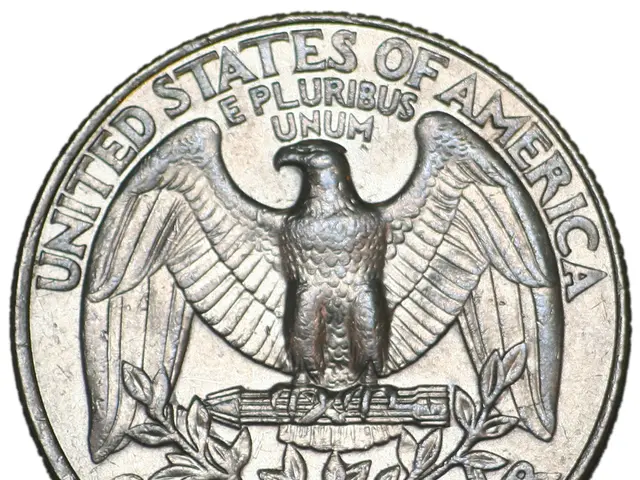U.S. President Trump Delivers Cautionary Statement on India's Oil Purchases from Russia
In a move that has sent ripples through the global political landscape, former President Donald Trump has threatened to impose tariffs on India's oil imports from Russia. Trump's announcement, made through his social media platform, Truth Social, has led to a significant strain in US-India relations, with the bilateral relationship facing tension over India's continued oil imports from Russia.
The proposed tariffs, initially set at 25%, have since been increased to 50% as a penalty for India's ongoing purchase of Russian oil despite global sanctions. This move marks one of the lowest points in the bilateral relationship in decades. In response, India has signaled its readiness to endure a "heavy price," paused plans to buy weapons and aircraft from the U.S., and pushed back diplomatically against the tariffs, which Indian officials called unfair and unjustified.
Despite these tensions, India remains fully engaged in negotiations for a bilateral trade agreement with the U.S. Talks continue across multiple channels, with a negotiation round scheduled for late August 2025. Both sides consider each other important trade partners, though the tariff hikes are linked to broader geopolitical issues, complicating the trade dialogue.
The relationship, once warmed by shared concerns about China and strategic cooperation initiated during Trump's first term and continued under his second, now faces challenges due to these trade and geopolitical conflicts. Analysts note that while there is hope this tension may be temporary, there are warning signs of a potential fundamental realignment in US policy toward India.
The situation underscores the tension between economic interests and geopolitical alliances. Ajay Srivastava, a former Indian trade official, argued that the operations of India's oil refineries are based on transparent market principles, driven by factors such as pricing and supply security. However, India's foreign ministry spokesman, Randhir Jaiswal, has highlighted the US's earlier encouragement for India to import Russian gas to stabilize global energy markets.
Jaiswal has also indicated that India started buying from Russia due to a shift in traditional supply routes toward Europe after the onset of the conflict in Ukraine. India has become one of the largest buyers of Russian oil, particularly after several European countries curtailed their imports following Russia's invasion of Ukraine in 2022.
The evolution of this situation will likely have implications for US-India relations, especially considering India's strategic position in the global economy and its historical ties with Washington. Jaiswal has criticized the US for imposing tariffs while continuing its trade with Russia, noting that last year, the US conducted about $3.5 billion in trade with the country despite ongoing sanctions.
Trump's statement indicated that this could be just the beginning of retaliatory measures. In his statement, he remarked that India doesn't seem to care about the people being killed in Ukraine by the Russian War Machine. India, widely recognized as a major economy, emphasizes its intent to protect its national interests against external pressures.
The upcoming meeting between Trump and Putin in Alaska could impact the situation, as additional tariffs are tied to India’s purchase of Russian energy and defense items. The relationship, once characterised by cooperation, now faces complex challenges, underscoring the delicate balance between economic interests and geopolitical alliances.
- The proposed tariffs on India's oil imports from Russia, initially at 25% and later increased to 50%, are linked to broader geopolitical issues, specifically India's ongoing purchase of Russian oil despite global sanctions.
- Analysts have noted that while there is hope the tension between the U.S. and India may be temporary, there are warning signs of a potential fundamental realignment in US policy toward India, with implications for US-India relations.
- The US's earlier encouragement for India to import Russian gas to stabilize global energy markets is one of the factors that has led India to become one of the largest buyers of Russian oil, particularly after several European countries curtailed their imports following Russia's invasion of Ukraine in 2022.
- The relationship between the U.S. and India, once characterized by cooperation, now faces complex challenges, as the ongoing trade and geopolitical conflicts complicate the dialogue for a bilateral trade agreement.






